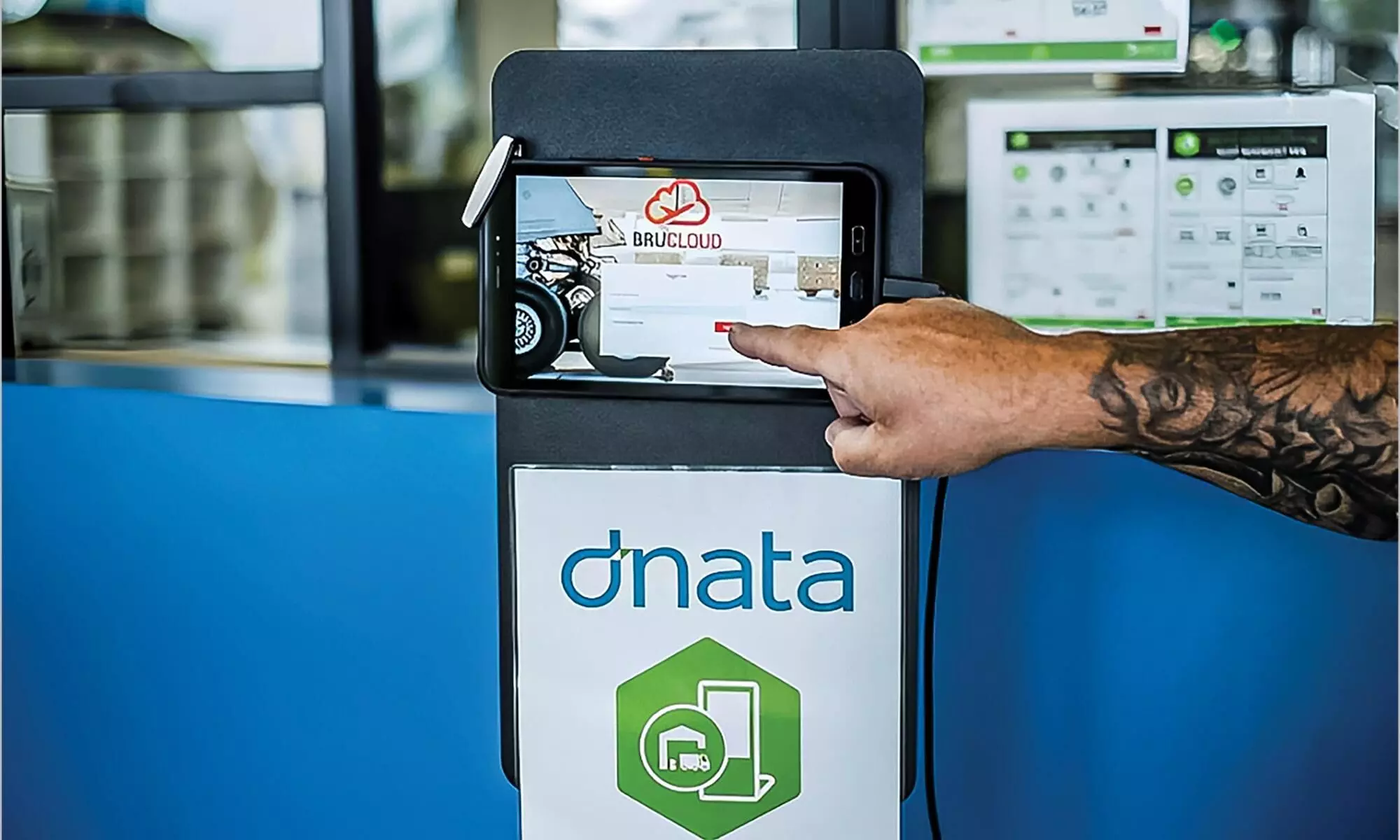
Air Cargo Community Systems: Shaping the future of cargo operations

As more success stories emerge and the benefits become increasingly apparent, CCS will likely play a crucial role in shaping the future of air cargo operations, driving efficiency, transparency, and collaboration across the entire supply chain.
The air cargo industry has long faced challenges of inefficiency, fragmented communication, and complex documentation processes. As global trade expands and supply chains become more intricate, the need for streamlined operations is critical. Air Cargo Community Systems or Cargo Community Systems (CCS) offer a solution, providing a centralised digital platform that connects all stakeholders in the air cargo supply chain, including airlines, freight forwarders, ground handlers, customs authorities, and shippers. By offering a single point of data entry and information exchange, CCS has the potential to significantly reduce paperwork, minimise errors, and enhance overall operational efficiency.
To understand the fundamental role of CCS in the industry, it's important to consider its core purpose. Henk Mulder, Head of Digital Cargo, International Air Transport Association (IATA), provided insight into the essential functions these systems serve in the air cargo ecosystem: "CCS serve the purpose they have always served: ensure the community has adequate digital services to deal with things that may be hard to achieve for individual companies, for example, data integration and sharing, efficiency and transparency, regulatory compliance and security."
One of the primary advantages of CCS is its ability to provide real-time visibility and transparency. The system offers end-to-end tracking capabilities, allowing stakeholders to monitor shipments at every stage of their journey. This increased visibility not only improves customer satisfaction but also enables better decision-making and proactive problem-solving. Additionally, CCS facilitates faster customs clearance processes by digitising and standardising customs documentation, helping to reduce delays at borders and airports.
Choosing the right technology is also key, as implementing a CCS also involves investing in enhancing your stakeholders' legacy systems, while there is also cost and time in implementing the technology
-Guillaume Crozier of dnata
To illustrate how CCS is being implemented in practice, we can look at the example of Brussels Airport. Their approach demonstrates how digital tools can be effectively deployed to benefit the entire cargo community. Dimitri Bettoni, Head of Cargo, Brussels Airport, elaborated on their innovative system: "At Brussels Airport we are a frontrunner in applying and deploying digital tools for our cargo community partners through BRUcloud (an open data sharing platform for BruCargo), which offers an amount of 12 applications (and more to come) that are used by more than 50 companies. Main example is a combination of four apps to digitise the landside management process that we call the "digital green lane" which is now used for all deliveries and pickups."
To effectively address industry challenges, CCS must incorporate several key features, including interoperability with existing systems, real-time data exchange, advanced analytics, robust security measures, and a user-friendly interface, to name a few. However, the specific requirements can vary depending on the unique needs of each airport and its cargo operations.
Jean Verheyen, CEO of Nallian, emphasised the importance of tailoring CCS to meet the specific needs of different airports. His insights highlight the necessity of a flexible approach in implementing these systems: "The specific crucial features can vary from airport to airport. For instance, airports with limited landside space may need to address congestion issues, while cargo hubs may focus on efficient cargo handling. Therefore, it is essential to assess each airport's cargo strategy and consider its unique characteristics and priorities. A modular ecosystem that addresses various potential issues will ensure the success of your CCS."
One of the key challenges in implementing CCS is ensuring access to accurate, real-time data from all stakeholders. This issue is at the heart of many inefficiencies in the air cargo industry. Amar More, CEO, Kale Logistics Solutions, shed light on this common problem and how CCS can address it: "Currently most airports are facing the problem of access to real-time data from the stakeholders, data is all there but is not captured in its true essence to make it relevant for business decisions. Again, the authenticity of data is a question. CCS enables this feature for airports where business data from the relevant stakeholders is shared on a real-time basis."
The greatest challenge is mindset of users to change to a new framework of technology.
-Amar More of Kale Logistics Solutions
Highlighting the factors that can delay or interfere with the adoption of CCS, Ed Dorr, Vice President eCargo Portfolio, CHAMP Cargosystems stated, “Some of the challenges are due to the global nature of air cargo, such as regulatory requirements, closed standards, the numerous stakeholder groups involved, and bad data quality or data strategies. But as with the implementation of any new technology, there's often a simple fear of disruption that is key to manage.”
Addressing specific operational challenges, such as capacity constraints and airport congestion, requires careful integration of various systems. Guillaume Crozier, SVP- UAE Cargo and Global Cargo Strategy, dnata, offered insights into how this integration can be achieved: "To address capacity constraints and airport congestion, firstly, it is essential that the CCS must integrate with the Appointment & Docking (ADM) System and Traffic Management System (TMS). This allows for advance planning of cargo delivery and acceptance prior to flight arrivals and departures."
To further expedite data exchange and interoperability within the CCS ecosystem, IATA's Cargo Connect platform has also gained prominence. This standardised platform facilitates seamless communication between various stakeholders, reducing integration complexities and accelerating data transfer. By providing a common language for the industry, Cargo Connect streamlines processes, enhances collaboration, and ultimately contributes to the overall efficiency of air cargo operations. As a result, the combined power of CCS and Cargo Connect drives greater efficiency and transparency throughout the air cargo supply chain.
Despite the clear benefits, the adoption and implementation of CCS face several challenges. These include the substantial initial investment required, resistance to change from stakeholders accustomed to traditional processes, the complexity of data standardisation, cybersecurity concerns, and regulatory hurdles due to varying regulations across different countries.
Drawing from practical experience in implementing CCS, Crozier of dnata provided insights into the multifaceted challenges that airports and stakeholders may encounter: "From our experience of setting up their e-commerce platform, Calogi, one of the main challenges of implementing a CCS is connecting with all stakeholders on a single platform and coping with technological advancements. Choosing the right technology is also key, as implementing a CCS also involves investing in enhancing your stakeholders' legacy systems, while there is also cost and time in implementing the technology. Finally, you must be able to cope with other emerging technologies and constant regulatory and industry enhancements."
The data flow of the CCS unlocks significant potential for automation by enabling digital processes and reducing manual steps. With smart solutions, a CCS can also enhance security and fraud prevention.
-Martina Schikorr of allivate
Beyond technical challenges, the human aspect of implementing new systems can often be the most significant hurdle. More of Kale Logistics emphasised the importance of change management and addressing user concerns: "The greatest challenge is mindset of users to change to a new framework of technology. The change management, if not handled well, becomes an issue with users and their end customers seeing the true value of CCS. Rather than replacing jobs, CCS enhances workforce capabilities by fostering a more skilled and efficient team."
The diversity of existing systems and solutions in use across the industry presents another challenge for CCS implementation. Verheyen of Nallian highlighted the need for flexibility and integration capabilities in CCS: "One significant challenge is that some community actors already have in-house systems or are global players implementing uniform solutions across airports. Therefore, CCS must be open to integrating existing solutions and offer alternatives for those without a current system. Your CCS mustn't be a monolithic & 'take it or leave it' solution."
Martina Schikorr, Managing Director, allivate GmbH (a joint venture by software platform DAKOSY and airport operator Fraport), provided a comprehensive view of how CCS can address the complexities of cross-company cargo flow and unlock new potentials for efficiency and security: "Managing cross-company cargo flow at the airport is complex and often a bottleneck in the entire end-to-end air cargo supply chain. A CCS can alleviate these challenges by continuously and automatically exchanging data between the involved companies. The data flow of the CCS unlocks significant potential for automation by enabling digital processes and reducing manual steps. With smart solutions, a CCS can also enhance security and fraud prevention."
The willingness of industry players to invest in CCS varies. Verheyen of Nallian offered insight into this situation. He explained that while all supply chain stakeholders are driven by economic incentives, the challenge in community systems lies in the perception of uneven benefits and the hope that others will bear the investment burden. He stated, "All stakeholders in the supply chain are economic actors who will invest if the ROI is positive. However, the challenge in community systems is that some participants may perceive the benefits for others to be higher and hope for others to invest. Each party is willing to invest in improvements to their operations, but joint improvements require agreements on cost-sharing."
Verheyen further emphasised the importance of change management and initial investments from airports to encourage participation. He suggested that as stakeholders recognize the collective benefits, they understand that improving the entire community's performance ultimately strengthens their own position.
Looking towards the future of CCS and its potential to transform the industry, Verheyen further offered a visionary perspective on how these systems could reshape not just airport operations, but entire supply chains: "In the next 5-10 years, more airports will recognise that community-driven collaboration and optimisation are key to success. As soon as airport logistics processes become planned, transparent, and predictable, the aim is to link these digital hubs into digital corridors to end2end planned, transparent, and predictable supply chains."
To conclude, while challenges remain, the potential of CCS to address current industry inefficiencies is significant. As more success stories emerge and the benefits become increasingly apparent, it is likely that CCS will play a crucial role in shaping the future of air cargo operations, driving efficiency, transparency, and collaboration across the entire supply chain.

